We use our own and third-party cookies to improve your browsing experience and to offer you content and services of interest.
Continued browsing on your part shall imply full acceptance of our cookies policy.
Your consent preferences
The following panel allows you to customize your consent preferences for any tracking technology used to help us achieve the features and activities described below. For more information on how these trackers help us and how they work, please see the cookie policy. You can review and change your choices at any time.
We use our own and third-party cookies to improve your browsing experience and to offer you content and services of interest.
Continued browsing on your part shall imply full acceptance of our cookies policy.

Household worker
Description
These professionals work in the social area and are part of an interdisciplinary team. In particular, they are responsible for providing the required attention and care to people who need support in the activities of daily living (ADL), always considering their family and their own environments.
These professionals work mostly in the home of people who have some degree of dependency (whether temporary or permanent), but also care for people or families in situations of vulnerability or social risk. Specifically, the support tasks that each person will perform will be defined and adjusted according to the intervention objectives and established work plan, which considers their needs and their level of autonomy.
Thus, the interventions carried out by these professionals are always personalised and individual, although in some cases, such as when working for a Home Care Service, they usually serve several people from the same area.
In summary, these professionals¿ functions focus on caring for people and their caregiving environment (family and community) and on performing preventive, educational, welfare and socialising tasks.
Tasks
Monitor the eating habits.
- Assist those people who require help with the intake of food.
- Plan menus and prepare meals according to the health and nutrition requirements laid out by the specialist.
- Ensure the supply and replacement of food.
Ensure personal hygiene and household cleanliness.
- Carry out personal hygiene of the assisted person according to their needs.
- Keep the clothing and shoes of the assisted person clean and in good condition.
- Keep rooms clean and tidy to create a pleasant home environment.
- Take care of the supply and replacement of cleaning and personal hygiene products.
Tend the emotional, physical and social needs.
- Help the assisted person to move around and look after his/her physical, mental and comprehensive wellbeing.
- Promote the assisted person¿s integration in the social community in order to continue developing his/her physical and mental faculties.
- Adapt social support material to the specific circumstances of the assisted person.
Carry out prevention, support and follow-up actions.
- Anticipate possible risk situations in the home to prevent falls or other factors that could worsen the assisted person condition.
- Anticipate and communicate health problems or changes in the condition of the person in order to contribute to his/her good progress and evolution.
- Control the person¿s prescribed medication to avoid self-medication and its consequences.
- Provide assistance with administrative questions and health procedures, if the person requires it.
- Manage the home documentation and maintenance, carrying out the necessary actions to ensure proper operation.
Coordinate with other professionals and community resources.
- Help to provide continued care alongside other professionals from the social or healthcare services and report to the coordination of the home care service.
- Communicate demands and needs to the social or healthcare services team in order to improve the care offered to people assisted in home care programmes.
- When these professionals work with people from the same area, they become a reference at the community level and are in charge of identifying the resources of the area to promote their use or derivation.
- Coordinate with other community professionals, such as care home entertainers, in order to integrate the person into the community.
Training
Regulated training and graduates
This profile does not respond to a single regulated training. There are different studies that train people to carry out this occupation:- Professionalism Certificate: Public healthcare for people in their homes (Level 2)
- Professionalism Certificate: Public healthcare for people in social institutions (Level 2)
- Professional Training Course(s) in the field of Social and Cultural Community Services - Intermediate Level: Care for dependent population
- Professional Training Course(s) in the field of Healthcare - Intermediate Level: Auxiliary Nursing Care
- Professional Training Course(s) in the field of Socio-cultural and Community Services - Advanced Level: Social Integration
Complementary training
Courses that help to technically train the tasks of this type of professionals are recommended: mental health and dementia, mobilization techniques, digestive system pathologies, among others.More occupations with this training | Look for more information on the degree of interest
Experience
Soft skills
Gain insight into soft skills | Access the dictionary of soft skills
Interests
Healthcare
Working to maintain and improve health, as well as physical and mental well-being, is the primary interest of people who are involved in the field of healthcare. Some of the activities in this field include making diagnoses, prescribing treatments and monitoring illnesses and injuries. These activities also include the application of therapeutic treatments (traditional or alternative) with a view to facilitating the physical recovery of those being treated. To carry out these activities, one must have in-depth knowledge of the human body and medicine, in its various specialisations.
Social community worker
Individuals related to the social/community field have an interest in working to improve people's social well-being and quality of life, as well as enhance their integration into their social, family and/or work environment. The professional activities that are common in this field include providing special support and aid to people at risk of social exclusion, designing programmes and implementing resources for the social and cultural stimulation of an area, and acting as mediators for conflict resolution in family, social or interpersonal environments. These activities involve constant interaction with people in order to improve their psychological and social well-being.
More occupations with your interests | Get to know your professional interests | Glossary of interests
Related occupations
Wage earner
Work hours
Working hours vary substantially, although it is most common to work part-time. Like other care work professionals, these professionals may work with more than one person and thus complete their working hours until they reach the full working day.
It is also common to work at weekends and at nights, depending on the needs of the dependent people for which they care.Salary
The salary ranges from around 15,600 to 17,600 euros gross per year.Professional category
Specialist staff
Life and health sciences
The main aim of the life and health sciences is to promote the health of living beings. As part of this mission, the industry brings together different fields ranging from healthcare to the pharmaceutical industry. Technology and innovation play an important role in facilitating progress towards a better quality of life. Healthcare is responsible for the medical and clinical care received by people to overcome illnesses or to guarantee their autonomy and quality of life. Animal health is also included under this bracket. Pharmaceutical production, prolific in Catalonia, occupies a central position in this industry, spanning the research, development and distribution phases. Biomedical research also plays an important role in life and health sciences, encompassing technical and research activities that expand and improve medical knowledge and practice. Finally, the industry also provides auxiliary and support services related to health, including diagnosis support services and the incorporation of new medical technologies.
Healthcare
01-2006 |  | Catalan | Beginner
| Catalan | Beginner
Documents (4 of 4)
Sector overview: Life and health sciencies
04-2024 |  | Catalan | Advanced
| Catalan | Advanced
This document shows data to have more information about the sector that will help you in your decisions regarding your training-work itinerary. This data is grouped into the following
Author: Barcelona Activa
Publishing date: 04-2024
Sector Report: Life and health sciencies
12-2023 |  | English | Beginner
| English | Beginner
Sectoral report showing the keys to this economic area as well as the main trends, both consolidated and emerging, in activities and professional profiles and reveals future scenarios.
Author: Barcelona Activa
Publishing date: 12-2023
Focus sectorial: Mental health
08-2023 |  | English | Advanced
| English | Advanced
Report focusing on mental health inside sociosanitary care area and its impact on jobs. It also tells us how new technologies can improve people's treatments and quality of life.
Author: Barcelona Activa
Publishing date: 08-2023
Compendium of resources for job search in the Life Sciences and Health sector
10-2022 |  | English | Beginner
| English | Beginner
Do you know where to find the offers that may interest you according to the sector in which you are looking for work? We put at your disposal the
Author: Barcelona Activa
Publishing date: 10-2022
Related Videos (5 of 5)

Sectorial testimony: Lluís Torrens
Lluís Torrens, director of Innovació Social of the Ajuntament de Barcelona, talks about how the care sector evolves towards residential care services at home and how profiles will have to be hybrid: social and sanitary at the same time. It also describes the skills needed for these profiles and what the future of the sector will be.
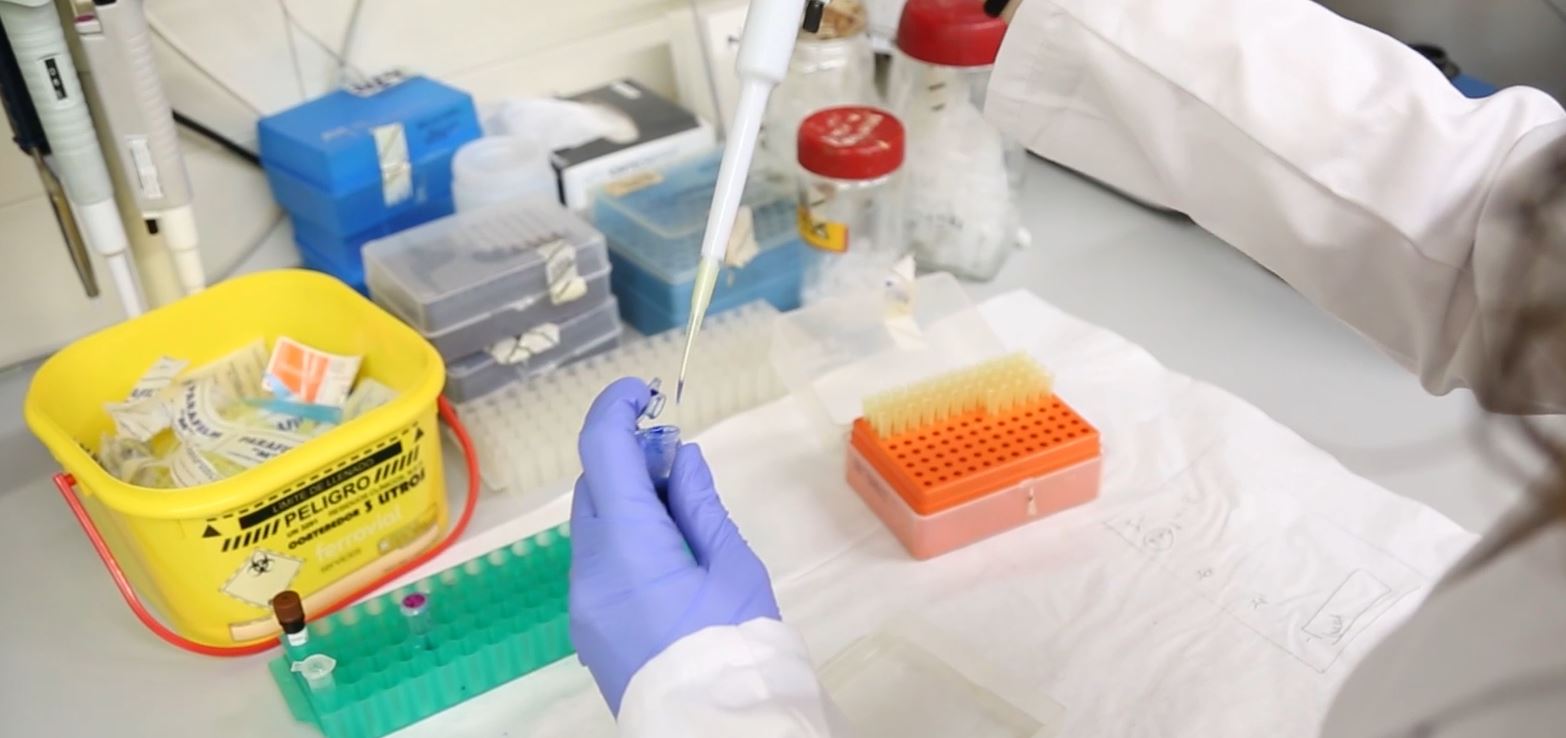
Sectorial testimony: Joan Comella
Joan Comella, scientific director of the Vall d'Hebron campus, tells us what profiles are dedicated to research, development and innovation in health and also what skills and knowledge the professionals involved should have.

Sectorial testimony:Fenin
Javier Selva, technical advisor and Carles Sisternas, head of office both in Fenin Catalunya, talk about the future of medical technologies and the professional profiles involved, we also describe the new technologies applied to telemedicine and the most demanded competences in this area.
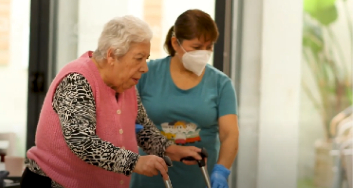
Video: Care Work for dependent elderly people
Video where you will find information about Care Work for dependent elderly people. You will learn about the services that perform this care, related occupations and future trends in this employment-generating sector.
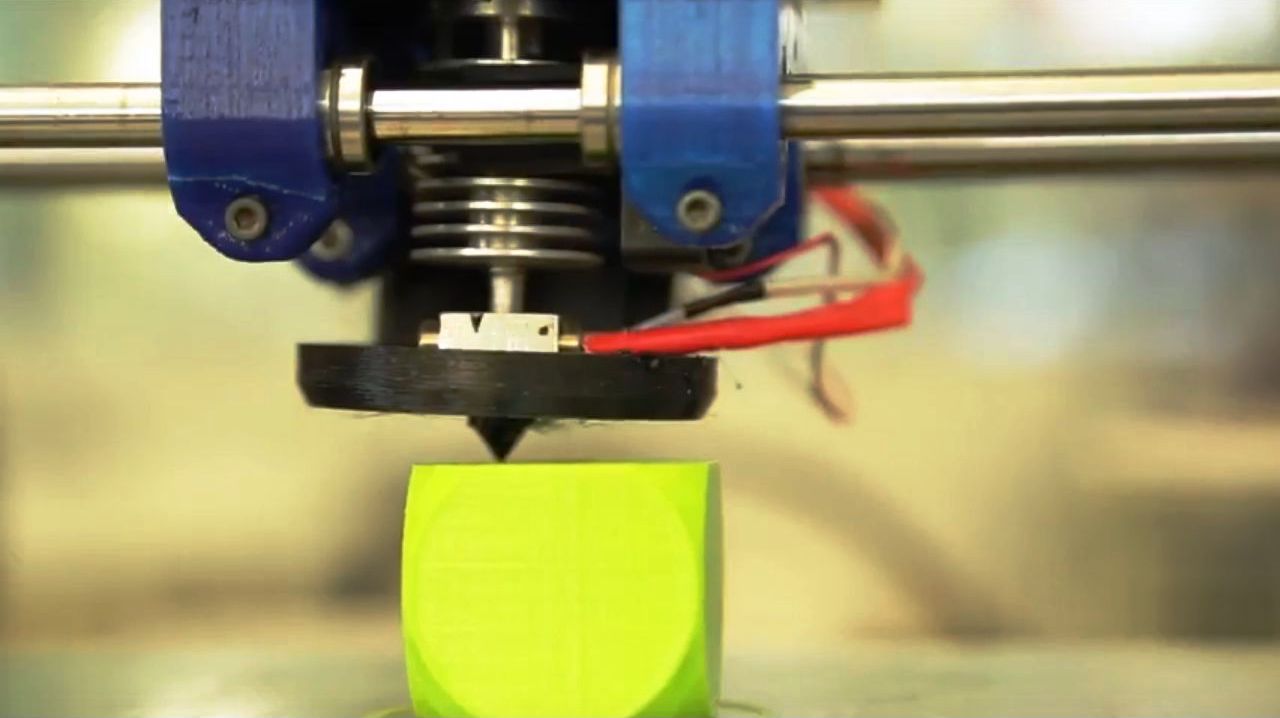
Jornada sectorial: Fabricació Digital i Impressió 3D
Vídeo on trobaràs un resum dels conceptes clau que van debatre els i les professionals i empreses participants a la jornada sectorial sobre l'impacte i potencial de la Fabricació Digital i la Impressió 3D en el futur de l'ocupació.
Useful links (5 of 14)
Life Sciencies and healtcare Infographic: Evolution and tech change
23-04-2024 |  | English | Beginner
| English | Beginner
Life and health sciences sector has gone through different transformational processes and milestones in recent decades, which have impacted professionals and asked them for new skills and knowledge. Let
Author: Barcelona Activa
Date of issue: 18-04-2024
https://treball.barcelonactiva.cat/infografies/en/timeline/life-sciences-and-healthcare.html
Life and health sciences sector Infographic: sector's ecosystem
23-03-2023 |  | English | Beginner
| English | Beginner
Formative centres, reference clusters, guilds, colleges, city projects... All of this and much more in this infographic that will allow you to gain a thorough knowledge of the ecosystem
Author: Barcelona Activa
https://treball.barcelonactiva.cat/infografies/en/ecosistema/life-sciences-and-healthcare.html
Life and health sciences Sector Infographic: From Training to occupation
18-01-2023 |  | English | Beginner
| English | Beginner
In this infographic you will be able to consult which of the formations will allow you to access the Life and health sciences sector, some of the most outstanding
Author: Barcelona Activa
Date of issue: 05-12-2022
https://treball.barcelonactiva.cat/infografies/en/sector/life-sciences-and-healthcare.html
Consalud.es
22-06-2021 |  | Spanish | Beginner
| Spanish | Beginner
Portal d'ocupació especialitzat en salut amb ofertes específiques del sector de la Salut i Ciències de la Vida. Aquest portal és una iniciativa de la Federació d'Empreses de Tecnologia
Date of issue: 22-06-2021
Indicadors laborals del Treball de Cures en gent gran depenent
27-04-2021 |  | Catalan | Beginner
| Catalan | Beginner
Practical infographic with the most relevant data on Care Work in elderly dependent people, in the metropolitan area of Barcelona, 2019. Elaborated by the Departament d'Estudis de la Gerència
Date of issue: 25-04-2021
https://infogram.com/treballs-de-cures-persones-grans-2019resilient-1hnp27mmenqly2g?live
Display Industry's jobs:
Life and health sciences
Healthcare
- Specialized care
- Nursing care
- Health research and management
- Medicine
- Animal health
- Diagnostic services
- Care Work
Biotechnology
- Diagnostic therapies and equipment production
- Biotechnological suppliers and distributors
- R&D Services
- Health research documentalist
- Biomaterials researcher
- Artificial skin operator
- Genetic counsellor
- Systems biology specialist
- European biotechnology partnership manager
- Biotechnology project manager
- Industrial property manager, specialised in biotechnology
- Bioinformaticien
- Animal Research Facility Technician
- Microscopy technician
Pharmaceutical Industry
- Drug development
- Drug development technician.
- Pharmaceutical chemist
- Galenic development manager
- Chemical library manager
- Toxicologist
- In-vitro testing technician
- Pharmaceutical laboratory technician
- Expert in computer simulation testing
- Tècnic/a d'assajos in vivo
- Clinical trial assistant
- Clinical trial coordinator
- Medical writer
- Clinical trial monitor
- Person responsible for pharmacovigilance
- Personalised pharmacogenetics specialist
- Peptide and oligonucleotide synthesis specialist
- Pharmaceutical and related products handler
- Pharmaceutical Production Technician
- Chemical synthesis and scaling specialist
- Chromatography techniques specialist
- Computational chemistry technician
- Chemical synthesis specialist
- Pharmaceutical suppliers and distributors
Medical technologies
Education and Social Cohesion
Education and social cohesion encompass a wide variety of activities that ultimately seek to provide a response to the social needs of the community and foment the physical, intellectual and personal capacities of all members of society. This sector represents a fundamental pillar of a cohesive society, one that is inclusive of minorities, attentive to the most vulnerable groups and constructive in terms of peace, solidarity and human rights. In occupational terms, it requires professionals with technical knowledge in addition to an educational and service-oriented vocation.
Social Services
01-2006 |  | Catalan | Beginner
| Catalan | Beginner
Documents (5 of 6)
Sector Overview: Education and Social Cohesion
04-2024 |  | English | Advanced
| English | Advanced
This document shows data to have more information about the sector that will help you in your decisions regarding your training-work itinerary. This data is grouped into the following
Author: Barcelona Activa
Publishing date: 04-2024
Sector Report: Education and Social Cohesion
12-2023 |  | English | Beginner
| English | Beginner
Sectoral report showing the keys to this economic area as well as the main trends, both consolidated and emerging, in activities and professional profiles and reveals future scenarios.
Author: Barcelona Activa
Publishing date: 12-2023
Focus sectorial: EdTech and E-learning
08-2023 |  | English | Advanced
| English | Advanced
Brief report on new parameters in education like Edtech and E-learning and how they are diversifying learning methodologies and resources.
Author: Barcelona Activa
Publishing date: 08-2023
Focus sectorial: Educational care and support professionals
08-2023 |  | English | Advanced
| English | Advanced
Brief report about inclusive education, emphasizing what measures and support are necessary to attend diversity and inclusion and talks about what specific professionals are required.
Author: Barcelona Activa
Publishing date: 08-2023
Compendium of resources for job search in the Education and Social Cohesion sector
10-2022 |  | English | Beginner
| English | Beginner
Do you know where to find the offers that may interest you according to the sector in which you are looking for work? We put at your disposal the
Author: Barcelona Activa
Publishing date: 10-2022
Related Videos (5 of 5)

Sectorial testimony: Lluís Torrens
Lluís Torrens, director of Innovació Social of the Ajuntament de Barcelona, talks about how the care sector evolves towards residential care services at home and how profiles will have to be hybrid: social and sanitary at the same time. It also describes the skills needed for these profiles and what the future of the sector will be.
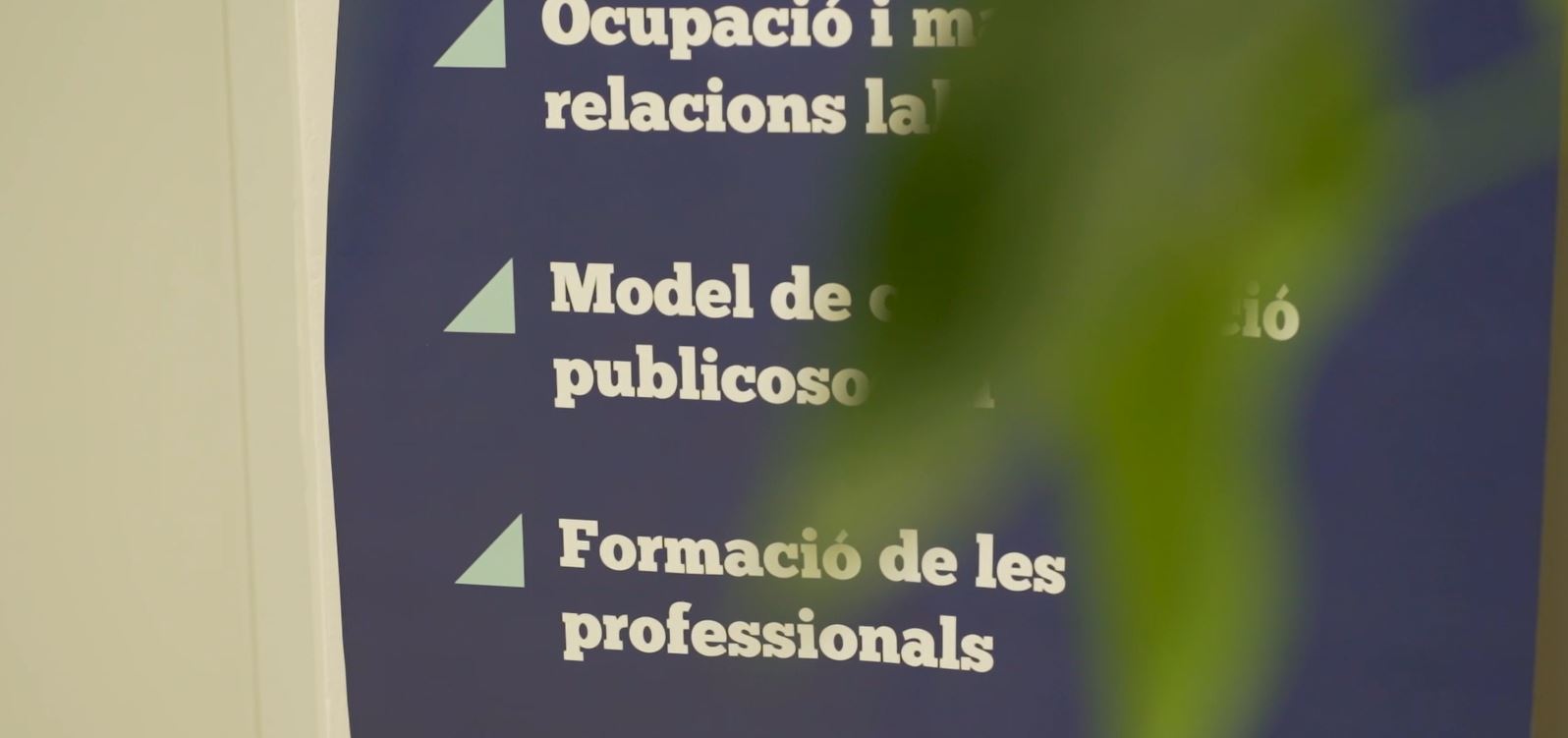
Sectorial testimony: Laia Grabulosa
Laia Grabulosa, director of the Confederation of Companies of the Third Social Sector of Catalonia, talks about the importance of education and social cohesion in the future of the sector, how it will transform the work of the professionals involved and what are the new trends.

Sectorial testimony: Xavier Aragay
Xavier Aragay, a specialist in the transformation of educational institutions, talks about the changes in schools and universities towards a hybrid model that will combine face-to-face and virtual. Professional profiles will be transformed and new support figures will also emerge.
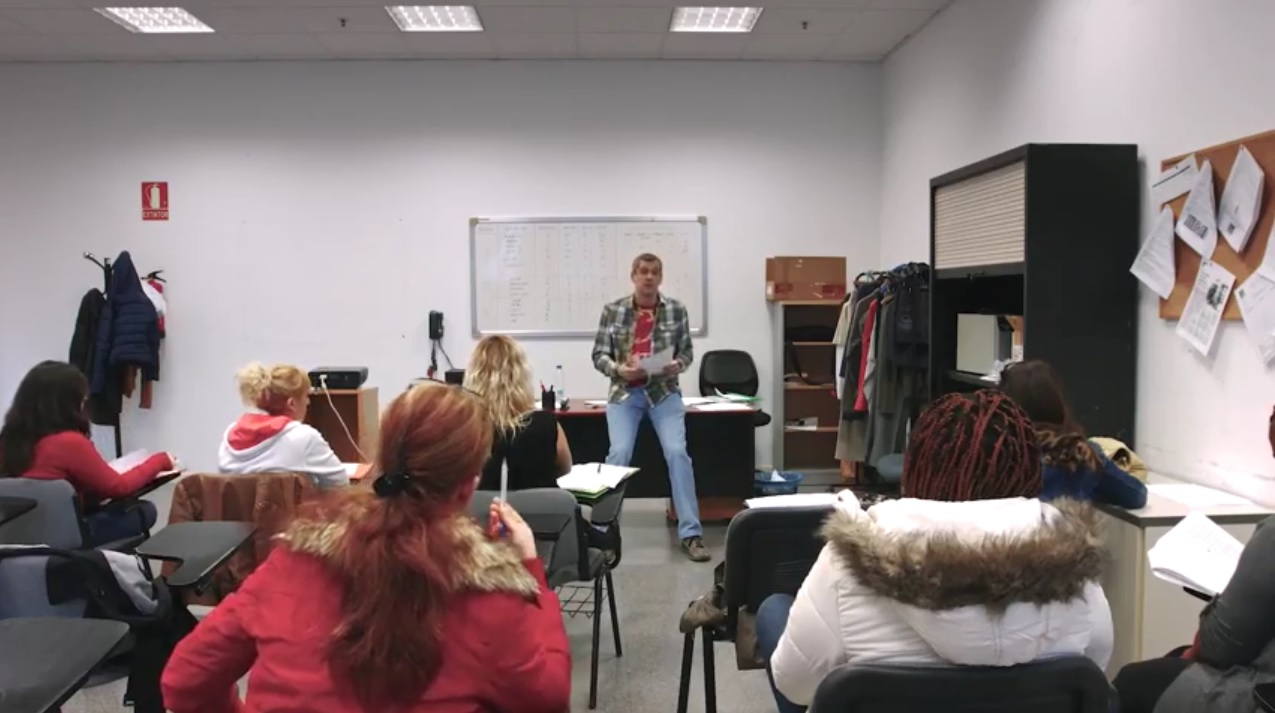
Jornada sectorial: Tercer Sector Social
Vídeo on trobaràs un resum dels conceptes clau que van debatre els i les professionals i empreses participants en la jornada sectorial sobre l'impacte i potencial del Tercer Sector Social.

Jornada sectorial: Tercer sector social - Joves
Vídeo on trobaràs un resum dels conceptes clau que van debatre els i les professionals i empreses participants en la jornada sectorial sobre l'impacte i potencial del Tercer Sector Social en l'àmbit dels col·lectius més joves i el seu potencial en ocupació.
Useful links (5 of 14)
Education and Social Cohesion Sector: sector's ecosystem
07-02-2024 |  | English | Beginner
| English | Beginner
Formative centres, reference clusters, guilds, colleges, city projects... All of this and much more in this infographic that will allow you to gain a thorough knowledge of the ecosystem
Author: Barcelona Activa
Date of issue: 11-01-2024
https://treball.barcelonactiva.cat/infografies/en/ecosistema/education-and-social-cohesion.html
Portal d'Ocupació del Tercer Sector
12-12-2023 |  | Catalan | Beginner
| Catalan | Beginner
Nou Portal d'Ocupació del Tercer Sector Social de Catalunya.
Date of issue: 12-12-2023
Fundació BCN FP
01-08-2023 |  | Catalan | Beginner
| Catalan | Beginner
La Fundació BCN Formació Professional és una organització social i sense ànim de lucre creada per l'Ajuntament de Barcelona la missió de qual és participar en el desenvolupament socioeconòmic
Consorci d'Educació de Barcelona
23-06-2023 |  | Catalan | Beginner
| Catalan | Beginner
El Consorci d'Educació de Barcelona és un instrument de cogestió i descentralització, en un marc de col·laboració institucional, que representa la voluntat de la Generalitat de Catalunya i l'Ajuntament
https://www.edubcn.cat/ca/alumnat_i_familia/etapes_educatives_i_ensenyaments/batxillerat
Education and Social Cohesion Sector Infographic: From Training to occupation
18-01-2023 |  | English | Beginner
| English | Beginner
In this infographic you will be able to consult which of the formations will allow you to access the Education and Social Cohesion sector, some of the most outstanding
Author: Barcelona Activa
https://treball.barcelonactiva.cat/infografies/en/sector/education-and-social-cohesion.html
Display Industry's jobs:
Education and Social Cohesion
Social cohesion
- Training for employment
- People with disabilities
- Psychosocial services
- Social and community services










 Open
Open


